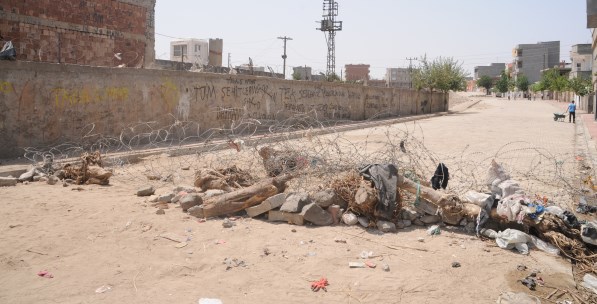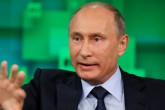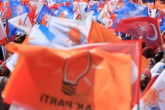Over the past week, the PKK attempted to establish an autonomous region in Cizre as part of their efforts to promote civil war in Turkey. Although the organization’s leadership knew that they couldn’t control the town, they tried nonetheless. Their end game was to draw parallels between Kobani and the sites of Turkey’s military operations.
The campaign, therefore, seeks to create new symbols and legends to the youth’s nationalist universe. The idea is to employ a rhetoric of victimhood in an effort to distract attention from the PKK’s decision to break the cease-fire. Part of the ongoing effort is to fight the security forces in residential areas in order to create tensions between locals and the government while talking about a brewing civil war in the international media. The authorities, meanwhile, are trying to restore public order in three cities and 13 town centers where the PKK fielded armed Patriotic Revolutionary Youth Movement (YDG-H) militias. In the wake of the Cizre clashes, Prime Minister Ahmet Davutoğlu made it clear that the government won’t back down: “This isn’t Syria. You won’t just set up cantons here because you like the idea.”
The rising tide of PKK violence and the Cizre episode leaves ordinary citizens questioning what the Kurdish community wants. Having grown sick and tired, some people think it might be better to “give them want they want and kick them out.” The correct questions, however, are yet to be asked: What do the Kurds want? What do the Kurdish nationalists want? The PKK posits that the two questions have the same answer. The Kurdish community’s integration, though, won’t be possible unless the Turkish authorities carefully distinguish between the two questions. In the past, a number of experts talked and wrote about what the Kurds want: Equal citizenship, Kurdish-language education and stronger local governments – most of which the Justice and Development Party (AK Party) government delivered.
At this point, however, what the Kurdish nationalists want remains an important question and triggers violence. The PKK leadership and the Peoples’ Democratic Party (HDP), whose end game was to secure stronger local governments back in 2013, have become a lot more self-confident over the past two years. With Washington’s support, the PKK set up several cantons in northern Syria through the Democratic Union Party (PYD), a proxy organization. Meanwhile, the militants receive positive feedback from European nations, especially Germany, as well as Iran. To make matters worse, the PKK’s emphasis on anti-AK Party rhetoric makes the domestic audience more receptive to their message.
Although the current bloodshed distracts many people, the Kurdish reconciliation process actually served an important purpose. Throughout the 1990s, people had been mumbling about the need to give peace and politics a chance. Over the past two years, the government exhausted all options to pursue a peaceful resolution through dialogue. In the future, the people will debate why the historic opportunity for peace was wasted and the Kurdish nationalists will be held responsible for the disarmament talks’ failure. Meanwhile, the differences of opinion between the mainstream Kurdish community and Kurdish nationalists will become clearer. When the violence slows down, Kurds themselves will start questioning what the PKK and HDP really want. The fact that calls for public protests received a weak response from ordinary citizens, among other things, shows that the future will spell trouble for the Kurdish nationalists.
At this point, the PKK’s ruthless oppression of the Kurdish community causes people to demand greater involvement in local affairs from the government. As such, the organization will only make more people question their motives by attempting self-rule in certain towns. Moving forward, it will become clear that “legal status” and “democratic autonomy” are just short-hand terms for PKK dominance, which translates into a systematic exclusion of rival Ku
In this article
- Domestic Policy
- Opinion
- 1990
- 2013
- Cease-fire | Ceasefire
- Civil War
- Cizre
- Europe
- Germany
- Islamic Republic of Iran
- Kobane
- Kurdish Community
- Kurdish Nationalism
- Kurdistan Workers' Party Terrorist Organization (PKK)
- Middle East
- PKK - YPG - SDF - PYD - YPJ - SDG - HBDH - HPG - KCK - PJAK - TAK - YBŞ
- Prime Minister
- Proxy War
- Syria
- Syrian Civil War
- Syrian Conflict
- Syrian Crisis
- Terror
- Türkiye's Justice and Development Party | AK Party (AK Parti)
- Türkiye's Peoples' Democratic Party (HDP)



